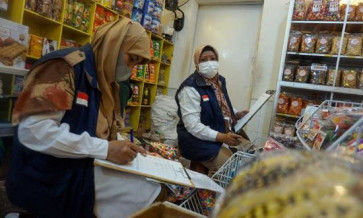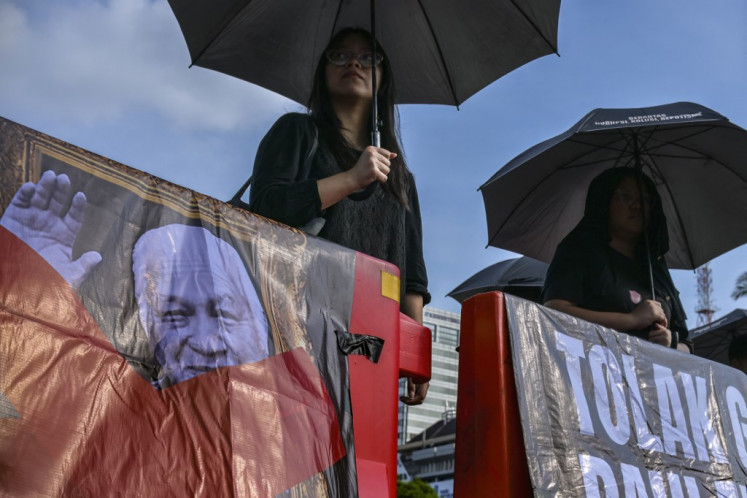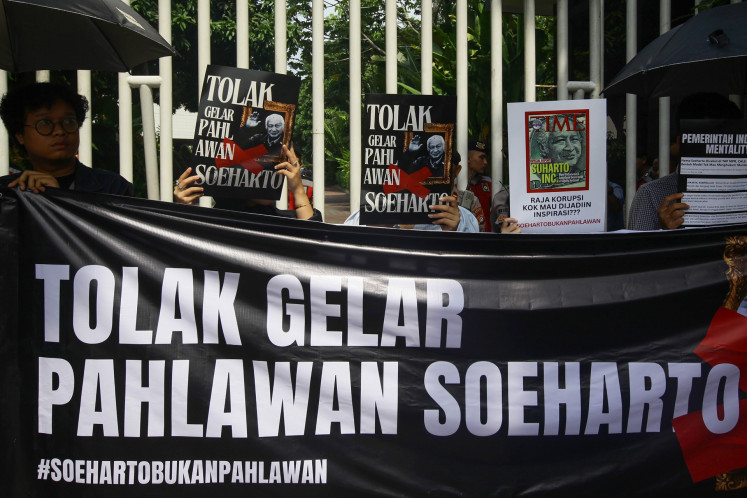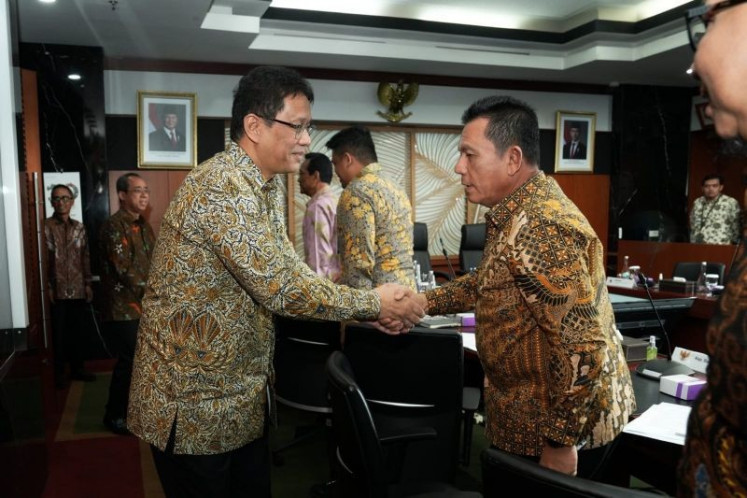Popular Reads
Top Results
Can't find what you're looking for?
View all search resultsPopular Reads
Top Results
Can't find what you're looking for?
View all search resultsJokowi's approval rating nosedives: SMRC
Amid peopleâs growing anxiety over the countryâs economy, public approval of President Joko âJokowiâ Widodoâs performance stands at a meager 40
Change text size
Gift Premium Articles
to Anyone
A
mid people's growing anxiety over the country's economy, public approval of President Joko 'Jokowi' Widodo's performance stands at a meager 40.7 percent, less than one year into his presidency, a survey has found.
The survey, released on Thursday by Saiful Mujani Research and Consultant (SMRC), shows Jokowi's public approval rating to be worse than that of then president Susilo Bambang Yudhoyono in the first year of his two-term presidency.
'It's a far cry from SBY's 2005 approval rating during his first term, which stood at 70 percent, and his approval rating during his second term in 2010, at 66 percent,' said SMRC executive director Djayadi Hanan during the survey's launch at his office in Central Jakarta.
The President declined to comment about the survey result when asked about it on the sidelines of a fast-breaking gathering at the Corruption Eradication Commission (KPK) on Thursday evening.
Salid Said, a political expert from the University of Indonesia, argued that Jokowi could bounce back as long as he exercised his power more freely and resisted intervention from his ruling coalition members.
'It's important for him to realize that he's a powerful president. If he keeps letting himself be dictated to by people around him, he will be lost in history,' he said on Thursday.
'If he is unable to muster up courage, then he will never be himself. Without that courage, there's no way for Jokowi to orchestrate a cabinet reshuffle to get the cabinet that he truly wants and the kind of cabinet he needs to carry out his vision and his plans,' Salim commented.
The survey questioned 1,220 respondents in all 34 provinces from May to June 2015, with a random sampling method and a 2.9 percent margin of error. Djayadi attributed the quick downfall of Jokowi's ratings to high initial public expectation.
For the months leading up to the 2014 presidential election and into his early days at the state palace in October of last year, Jokowi enjoyed public adulation thanks to his meteoric rise from mayor of Surakarta in Central Java to become President of a country of 250 million people. His humble beginnings as the son of a carpenter added to his adulation.
Popular public support helped him to beat his rival, Prabowo Subianto, 53.15 percent to 46.85 percent in the election.
When Jokowi first announced his Cabinet in October 2014, 74.5 percent of respondents from a previous SMRC survey said that they believed Jokowi to be able to deliver on his promises to lead the country.
'Now, there are only 54.9 percent who say so. This is a significant drop of 20 percent in less than one year. Those who are doubtful of Jokowi's capability also increased from 17.5 percent to 37.8 percent,' Djayadi said.
The survey revealed that the public perceived Jokowi's performance to be subpar in three areas: economics, politics and law enforcement,
Some 31.5 percent of respondents believed that the economy had gotten worse since Jokowi took over the presidency, while 37.5 percent believed that the current political situation had deteriorated under Jokowi's watch. Likewise, 37.8 percent of respondents believed that law enforcement had declined during the surveyed period.
'When Jokowi decided to eliminate the fuel subsidy, he failed to manage the consequences of that policy. The government appeared not to have strategies to mitigate the impact. Jokowi seemed busy focusing on the political fiasco that erupted between the National Police and the Corruption Eradication Commission [KPK] instead,' Djayadi said.
'When people's bellies were full, they could tolerate more [mistakes from their president]. But when hunger strikes, a tiny mistake could easily fuel our rage,' Djayadi warned.










